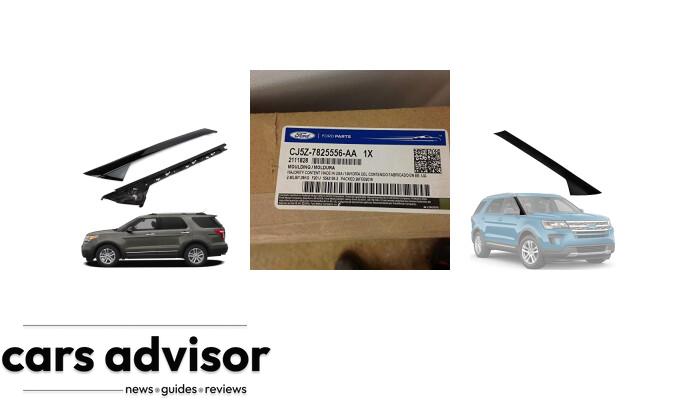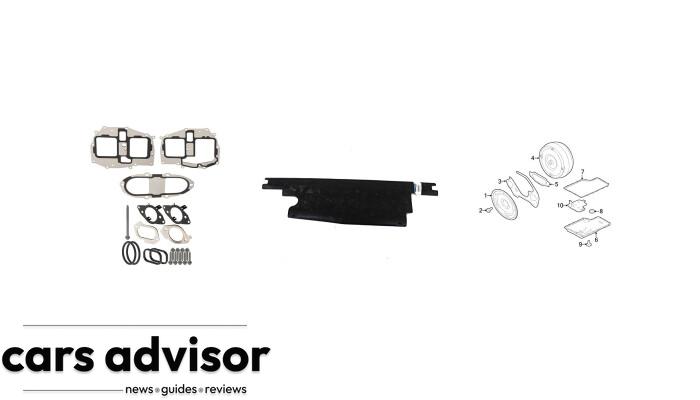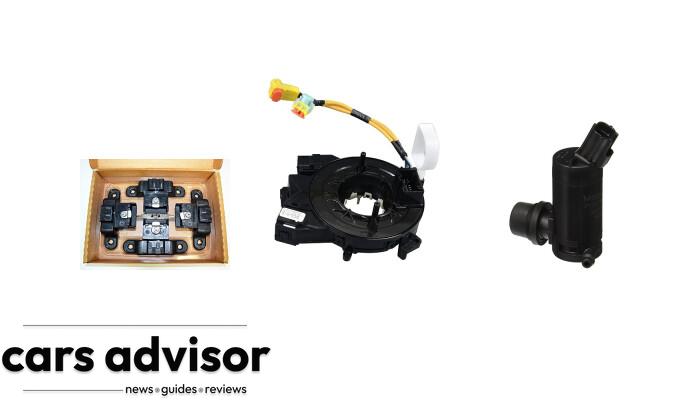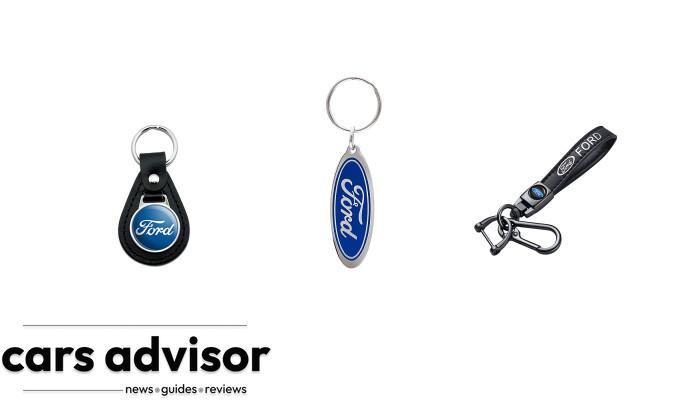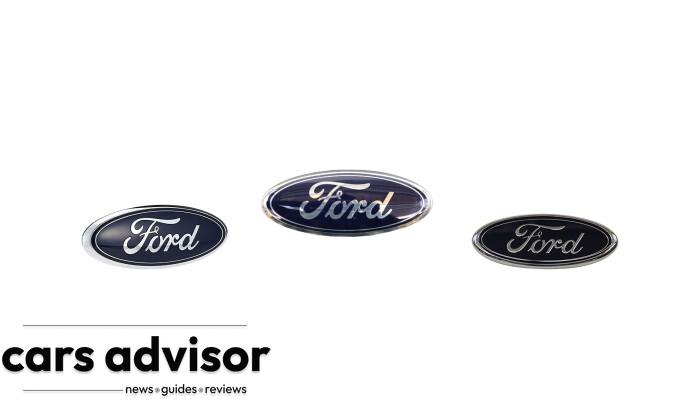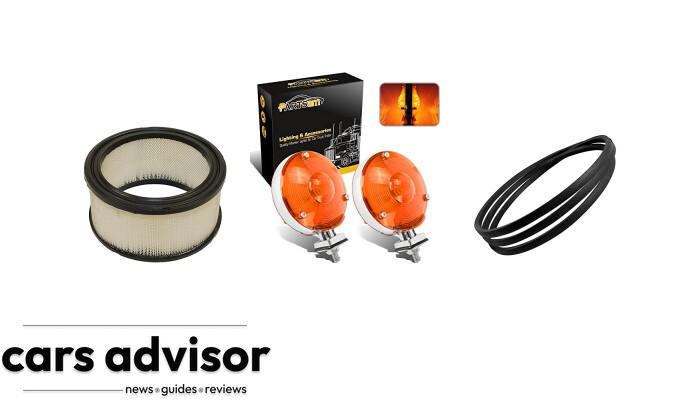Experiencing a flashing check engine light and car shaking can be alarming for any driver, as it signals an issue that needs immediate attention.
This blog post will discuss the common causes of these symptoms, the importance of addressing them promptly, and steps to take when faced with this problem. Read on to learn more about maintaining your vehicle’s health and ensuring its smooth performance on the road.
TLDR
1. A blinking check engine light and car shaking is usually a sign of a continuous engine misfire or an issue with engine timing.
2. Cylinder misfire is a common cause of a flashing check engine light and shaking in almost every instance.
3. Misfires, low fuel pressure, or broken spark plugs can produce check engine light blinking car shaking.
4. A car shaking with a flashing check engine light can also indicate bad spark plugs and ignition coils.
5. Faulty spark plugs can be a critical component of the engine and cause shaking and misfires.
6. Poor fuel pressure can cause shaking or vibration in the car and trigger the check engine light.
7. Other things such as a faulty idle air can also cause shaking or vibration in the car.
8. A flashing check engine light and car shaking can be a sure symptom of problems in the engine.
9. The shaking is usually from a misfire, and ignition-related codes can trigger the check engine light to flash.
10. If the car has a violently shaking engine and a check engine light, it is best to have it checked by a professional mechanic to prevent further damage.
Common Causes Of A Flashing Check Engine Light And Shaking Car
The common causes of a flashing check engine light and shaking car include engine misfire, faulty ignition system, fuel system issues, and electrical problems.
Engine Misfire
Engine misfires are a common cause of a flashing check engine light and shaking car. Essentially, a misfire occurs when one or more of the engine’s cylinders fail to properly fire, leading to an imbalance in the combustion process. This can result in reduced power output, uneven vibrations throughout the vehicle, and even stalling if left unresolved. Several factors could lead to engine misfires, including faulty spark plugs, ignition coils, fuel delivery issues, or problems with internal engine components such as piston heads.
For example, suppose your car is experiencing cylinder misfires due to worn-out spark plugs. In that case, the electrical charge meant for igniting the air/fuel mixture within each cylinder will not be efficient enough for complete combustion. This inefficiency can manifest itself as shaking or vibrations felt by drivers and passengers alike while traveling at various speeds.
Similarly, malfunctioning ignition coils may struggle to provide adequate current needed sparking plug gaps effectively—creating conditions ripe continuous misfiring episodes leave disturbed all-too-visible shaking sensation accompanying blinking cursor warning signal dashboard monitor
Faulty Ignition System
A faulty ignition system is another common cause of a flashing check engine light and shaking car. The ignition system consists of spark plugs, wires, coils, and other components that ignite the fuel in the engine. If any of these parts fail or malfunction, it can cause a misfire and trigger the check engine light.
Faulty spark plugs are often to blame for an ignition system problem. Over time, they wear down and become corroded or covered in debris. This affects their ability to provide a strong spark to ignite the fuel mixture properly. When this happens, it can cause the engine to shake or vibrate as well.
It’s important to address issues with your ignition system promptly since they can lead to further damage if left unchecked. Regular maintenance like changing your spark plugs every 30k-50k miles will help prevent any problems from occurring in the first place.
Fuel System Issues
Fuel system issues can also cause a car’s engine to shake and trigger the check engine light. Low fuel pressure, clogged fuel filters, or malfunctioning fuel injectors can cause the engine to misfire and vibrate. It is important to keep up with regular maintenance for your car’s fuel system, such as replacing fuel filters and checking for leaks.
In addition, using low-quality or contaminated fuel can also lead to issues with the fuel system which may result in a shaking engine. This is why it is important to use high-quality gasoline from reputable gas stations. Addressing any problems within the fuel system promptly can prevent further damage and expensive repairs down the line.
If you notice your car shaking along with a flashing check engine light, it could be an indication of various underlying issues with your vehicle’s systems including electrical problems or exhaust malfunctions. Seeking professional assistance immediately will help diagnose these underlying causes before any further damages occur leading to increased repair costs over time.
Electrical Problems
Another common cause of a flashing check engine light and shaking car is electrical problems. Faulty electrical components in the engine can cause the spark plugs to malfunction, leading to misfires and shaking. Electrical issues can also affect fuel injectors, potentially causing them to fire incorrectly and lead to further engine trouble.
To address these issues, it’s important to have your car diagnosed by a professional mechanic who can identify any faulty electrical components in your engine. Ignoring these problems may lead to more serious damage down the road as well as increased repair costs.
In addition, regular maintenance such as replacing old spark plugs or fixing faulty wiring can prevent many electrical problems from occurring in the first place. Proper upkeep of your vehicle’s electric system will keep it running smoothly for years to come and avoid costly repairs caused by neglecting routine maintenance.
Why You Should Address The Issue Immediately
Ignoring the flashing check engine light and shaking car can lead to safety concerns, damage to other engine components, increased repair costs, and reduced fuel efficiency – don’t risk it! Keep reading to learn more about why you should address this issue immediately.
Safety Concerns
Ignoring a flashing check engine light and shaking car can lead to serious safety concerns. In some cases, it could cause your vehicle to suddenly stall or lose power while driving on the road. Such situations can be extremely dangerous, especially if you’re cruising at high speeds or maneuvering through heavy traffic. Moreover, your car’s braking system may be compromised, which could cause accidents.
It’s essential to understand that shaking and misfires in the engine often indicate critical engine problems that need immediate attention. If left unaddressed for an extended period, these issues not only endanger you but also other motorists on the roadways.
Plus, continued driving with a faulty car puts undue strain on other engine components leading to severe damage that might cost you more money in repairs down the line. Don’t put yourself and others at risk; take every warning sign seriously and seek professional help immediately when your check engine light starts blinking with car shaking symptoms.
Damage To Other Engine Components
Ignoring a flashing check engine light and shaking car can lead to severe damage to other engine components. For instance, if the root cause of the problem is a misfire in one or more cylinders, leaving it unaddressed can lead to an inefficient fuel-burning process, causing damage to your car’s catalytic converter over time. When this happens, harmful emissions will be released into the environment via your exhaust pipe.
Furthermore, when you ignore a flashing check engine light and shaking car, it can also cause harm to other related systems within your vehicle. The electrical system could sustain damages due to voltage spikes caused by faulty sensors that often accompany these symptoms.
Running with an overheating motor puts additional strain on parts like head gaskets and water pumps leading them towards failure. In conclusion of damaging the other engine components – fixing issues promptly not only ensures that you avoid expensive repairs but also keeps you safe while driving as well as contributing positively to our environment by reducing harmful emissions from poorly maintained engines.
Increased Repair Costs
Ignoring a flashing check engine light and a shaking car can lead to increased repair costs. If left unchecked, small issues can turn into more significant problems that require expensive repairs. For example, if the misfire is not addressed promptly, it could lead to damaged pistons or even blow up the engine.
In addition to the cost of repairing major damage, ignoring these issues also means you may need to replace other related components that are affected by neglecting maintenance. It’s often cheaper in the long run to address smaller problems immediately rather than allowing them to grow and cause additional damage later on.
Regular maintenance and tune-ups are essential in preventing future repairs and keeping your vehicle running smoothly without compromising its performance.
Remember: prompt attention prevents extra expense!
Reduced Fuel Efficiency
Ignoring a flashing check engine light and shaking car can lead to reduced fuel efficiency. When the engine is misfiring or not functioning properly, it requires more fuel to run correctly. This means that you’ll be using up more gas than you would if your car’s engine was running smoothly.
Reduced fuel efficiency can result in higher costs at the gas pump, which can have an impact on your budget over time. Additionally, ignoring the root cause of this issue can potentially damage other components of your car’s engine, leading to even greater repair costs down the road. If you notice any shaking or see that check engine light blinking, it’s essential to address the issue immediately for both safety reasons and financial reasons.
In summary, reduced fuel efficiency is just one consequence of ignoring a flashing check engine light and shaking car – there are many other potential consequences as well. Taking care of these issues promptly by seeking professional help will reduce further damage while ensuring optimal performance from your vehicle in terms of cost and safety concerns.
Immediate Actions To Take When The Check Engine Light Is Flashing
When the check engine light is flashing and the car is shaking, it’s crucial to slow down, pull over safely, and seek professional help immediately.
Slow Down And Pull Over
If you notice a flashing check engine light and shaking in your car, it’s essential to take immediate action to prevent further damage. Here are the steps you should take:
- 1. Slow down your vehicle and pull over to a safe location.
- 2. Turn off the engine and wait for at least 10 minutes before attempting to restart it.
- 3. Check under the hood for any obvious issues, such as loose or disconnected wires, leaks, or broken parts.
- 4. If you’re not able to identify any problems, avoid trying to diagnose or fix the issue yourself. Instead, contact a professional mechanic for help.
- 5. Do not continue driving your car with a flashing check engine light and shaking as this can cause more damage to your engine.
Remember that ignoring warning signs like a flashing check engine light and shaking can lead to severe consequences such as increased repair costs, reduced fuel efficiency, and even potential safety hazards on the road. It’s always best to address these issues promptly by seeking professional help from an experienced mechanic.
Check For Obvious Issues
When your check engine light is flashing and the car is shaking, it’s important not to panic. The first step you should take is to slow down and pull over as soon as it’s safe to do so. Once you’re parked on the side of the road, you can start checking for obvious issues like loose or damaged spark plug wires, a cracked distributor cap, or a clogged air filter.
If any of these components are visibly damaged or dirty, they could be causing your engine trouble. However, not all problems will be easily visible to the untrained eye. If you’re unfamiliar with what you’re looking at under the hood of your car, it’s best to seek professional help rather than attempting repairs yourself. A qualified mechanic can diagnose the problem correctly and recommend next steps that will save time and money in the long run.
In short, while checking for obvious issues is an essential step when dealing with a flashing check engine light and shaking car situation; it might not always be clear what could cause this issue without professional help from a certified mechanic who can look into your vehicle’s diagnostics system properly.
Seek Professional Help
If you experience a flashing check engine light and car shaking, it is important to seek professional help right away. Here are some steps you can take:
- 1. Slow down and pull over – If the car is shaking violently, carefully pull over to a safe location and turn off the engine.
- 2. Check for obvious issues – Look for any visible signs of issues such as leaks or loose connections in the engine.
- 3. Seek professional help – It’s best to have the vehicle checked by a qualified mechanic who can use diagnostic tools to identify and fix any issues causing the problem. Ignoring warning signs may cause further damage, leading to costly repairs later.
- 4. Follow recommended maintenance schedules – Regular maintenance will help address small problems before they become more significant issues that may require extensive repair work.
- 5. Keep records of vehicle service history – Keeping track of your car’s maintenance and repair history can help mechanics diagnose and fix problems faster, saving time and money on unnecessary repairs.
Remember, taking care of your car’s health involves not just regular tune-ups but also addressing any warning signs promptly when they occur. Seeking professional help can ensure your safety while driving and avoid costly repair bills down the road.
Long-term Solutions To Prevent Check Engine Light And Shaking Car Issues
To prevent future instances of a flashing check engine light and shaking car, regular maintenance such as tune-ups, using high-quality fuel and oil, keeping tires properly inflated, avoiding harsh driving habits, and addressing issues promptly are all crucial in maintaining your car’s engine performance.
Regular Maintenance And Tune-ups
Regular maintenance and tune-ups are crucial in preventing check engine light flashing and car shaking issues. Here are some tips to keep your car in good shape:
- 1. Change the oil and oil filter regularly to prevent engine wear and tear, which can cause misfires and engine shaking.
- 2. Replace the air filter at least every 12,000 miles to prevent clogging, which can affect engine performance.
- 3. Check and replace spark plugs as recommended by the manufacturer to ensure proper ignition of fuel in the cylinder chamber.
- 4. Have a professional mechanic inspect the fuel system, including fuel filters, fuel injectors, and pump regularly, as poor fuel pressure can cause vibrations or trigger warning lights.
- 5. Replace worn belts and hoses that can cause engine problems like overheating or stalling.
- 6. Keep tires properly inflated to avoid uneven wear that may lead to vibration or car shaking while driving.
- 7. Perform regular tune-ups on the engine control system to maintain efficient combustion and reduce emissions that may trigger warning lights.
By following these tips for regular maintenance and tune-up of your car’s engine components, you can avoid potential problems like flashing check engine lights and vibrating engines.
Use High-quality Fuel And Oil
Using high-quality fuel and oil is essential to keep your car running smoothly and prevent engine problems. Low-grade fuel or oil can cause damage to the engine’s internal components, which can result in a flashing check engine light and shaking car. Cheap gas may contain impurities that clog the fuel injectors or cause low combustion efficiency, leading to misfires with shaking and loss of performance.
Similarly, low-quality motor oil does not lubricate the engine as effectively, causing friction between moving parts that can lead to overheating and accelerated wear. This damage puts additional stress on other engine components, potentially triggering the check engine light. Therefore, it is best to use high-quality synthetic oils recommended by the manufacturer for better protection against wear and tear.
To avoid issues with low-grade fuels or oils that could trigger a flashing check engine light with a shaking car, it’s essential always to fill up at reputable gas stations that offer quality fuels from trusted sources. It is also important never to overlook regular oil changes because fresh oil reduces friction on metal surfaces in your vehicle’s internal system ensuring peak performance from your vehicle until you’re ready for an upgrade!
Keep Tires Properly Inflated
Proper tire inflation is crucial for car performance and safety, which can also impact the severity of engine misfires that cause car shaking and a flashing check engine light. Here are some tips to keep your tires properly inflated:
- 1. Check tire pressure regularly and keep it at the recommended level.
- 2. Avoid overinflating or underinflating your tires, as both can cause shaking while driving.
- 3. Use a good quality tire gauge to measure the pressure accurately.
- 4. Inspect the tires for any visible damage, such as cuts or punctures, that could affect their inflation.
- 5. Replace old or worn-out tires with new ones to ensure proper inflation and safe driving.
By keeping your tires properly inflated, you can prevent uneven wear and tear on them, reduce the risk of blowouts or accidents on the road, and ultimately help maintain better overall car performance.
Avoid Harsh Driving Habits
Another way to prevent engine issues that cause a flashing check engine light and car shaking is by avoiding harsh driving habits. Aggressive driving such as rapid acceleration, sudden braking, or revving the engine can put stress on your car’s engine components and increase the likelihood of problems. Slamming on the brakes or accelerating too quickly can cause unnecessary wear and tear on parts like spark plugs and ignition coils.
Additionally, try not to overload the vehicle with excessive weight as this puts stress on not just the engine but also other parts of the car’s suspension system. Keeping these factors in mind will help prolong your car’s lifespan while lowering repair costs in the long run.
In conclusion, preventing misfires that cause a flashing check engine light and shaking involves more than regular maintenance; it means adapting good driving habits too! By treating your vehicle gently when you drive it – steering clear of fast starts or stops – you are helping give your machine its best chance at an extended life without any serious problems down the road!
Address Issues Promptly
Addressing car engine issues promptly is crucial to avoiding expensive repairs and ensuring safety on the road. Here are some important steps to take when addressing issues with your car’s engine:
- 1. Pay attention to warning signs: If you notice a flashing check engine light or shaking in your car, take it as a warning sign that there may be an issue with the engine.
- 2. Pull over safely: If you’re driving when the warning sign appears, slow down and pull over to a safe location away from traffic.
- 3. Check for obvious problems: Once stopped, check for obvious problems such as a loose gas cap, damaged hoses or belts, or any leaking fluids.
- 4. Seek professional help: If you can’t identify an obvious problem, seek professional help from a qualified mechanic who can diagnose the problem correctly using diagnostic tools.
- 5. Don’t ignore the issue: Ignoring an issue with your car’s engine can cause further damage to other components leading to more expensive repairs and potential safety risks.
- 6. Keep up with regular maintenance: Regular maintenance such as tune-ups and oil changes helps keep your car’s engine running smoothly reducing the chances of sudden issues appearing while driving.
- 7. Don’t delay in fixing issues: Delaying repair can lead to further damage, reduced fuel efficiency, and increased repair costs over time.
By following these steps and addressing issues promptly, you can ensure your vehicle stays safe and reliable on the road while avoiding costly repairs down the line.
Conclusion
In conclusion, if you notice your check engine light flashing and your car shaking, it is vital to take immediate action. Ignoring these warning signs can lead to safety concerns, damage to other engine components, increased repair costs, and reduced fuel efficiency.
The best thing to do is slow down and pull over safely. Check for obvious issues and seek professional help as soon as possible. Regular maintenance such as tune-ups coupled with the use of high-quality fuels and oils go a long way at preventing check engine light-related problems in the long term.
In summary: a flashing check engine light with a shaking car requires urgent attention!








